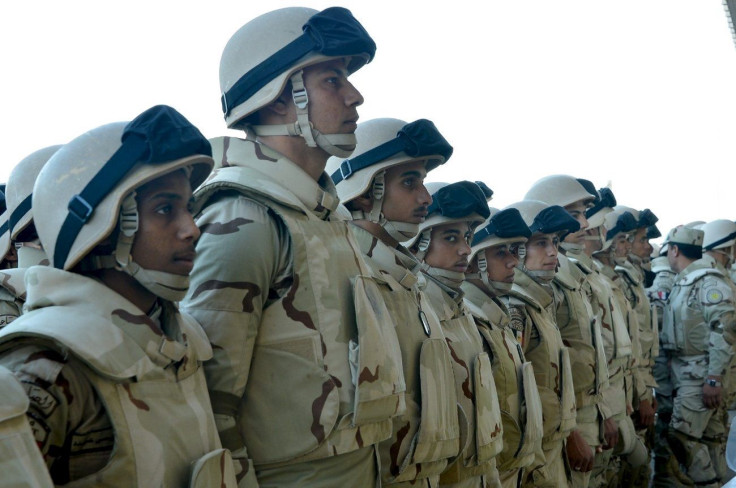Islamic State 2016: Saudi Arabia Proposes ‘NATO-Like’ Force To Fight ISIS, Terrorism

Saudi Arabia has proposed a “NATO-like” alliance of dozens of Muslim-majority countries to take on a perceived terror threat, the Independent reported Wednesday. The announcement comes days after 21 countries conducted massive military exercises in northern Saudi Arabia, which included drills for how to respond to a potential terror attack.
The alliance would be used to fight against threats like the Islamic State group, whose sympathizers have carried out attacks in several Muslim-majority countries, including Saudi Arabia, and controls large swaths of Iraq and Syria. Pakistan has been made responsible for organizing a framework for the military alliance.
Pakistan’s chief of army staff, Gen. Raheel Shareef, was offered the role of commander in chief, Pakistan’s Dunya News reported. The military official and Pakistani Prime Minister Nawaz Shareef were in Saudi Arabia for a three-day visit when the plan was proposed.
The announcement comes as Saudi Arabia and other Muslim countries face pressure to take the lead in the fight against the Syria- and Iraq-based extremist group, also known as ISIS. Late last year, Saudi Arabia made a similar announcement, vowing to coordinate a fight with 34 mainly Muslim countries to take on “terrorist organizations.”
Saudi Arabia mulls NATO like alliance of 34 Muslim states, asks Pakistan to lead.https://t.co/2WHSgYfcvp pic.twitter.com/HFgn3apG9w
— Pakistan Defence (@defencepk) March 16, 2016
ISIS has recently lost much of its territory, largely due to a U.S.-led airstrike campaign, and has reportedly begun slashing fighter salaries amid financial problems. Recent reports have also indicated that the militant group has increasingly relied on child soldiers amid a wave of defections. World leaders continue to consider the group a major international threat.
It was unclear whether Iran, a longtime rival of Saudi Arabia, would be part of the military alliance. The two powers generally stand on opposing sides of Middle Eastern conflicts and have major disagreements over the war in Syria. While Iran has backed the Syrian leader Bashar Assad, Saudi Arabia and its allies have supported rebel groups fighting Assad’s government.
© Copyright IBTimes 2024. All rights reserved.












